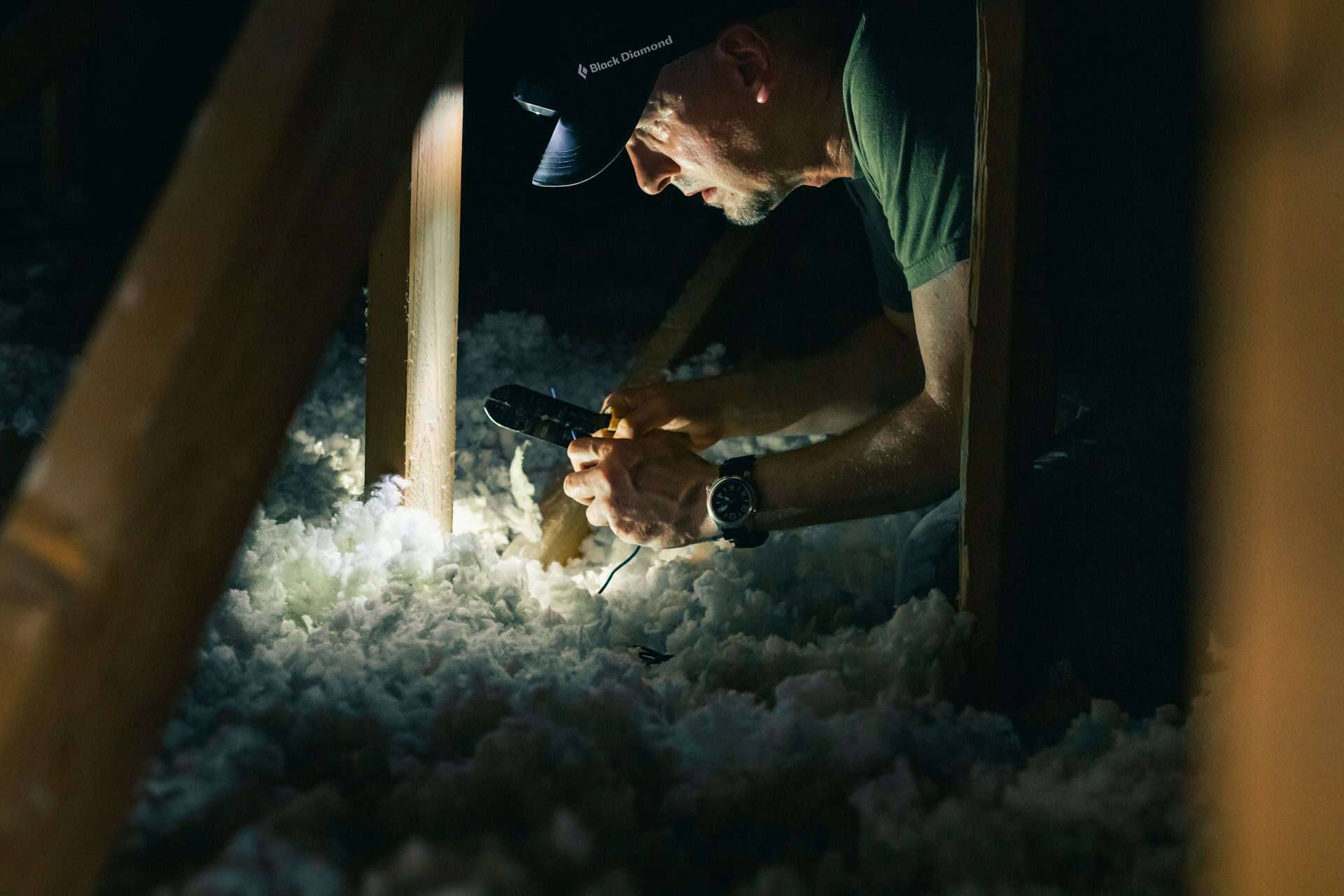Welcome to final part of OnTheWight’s two-hour conversation with Ollie Boulter, the strategic manager for Planning and Infrastructure Delivery at the Isle of Wight council (IWC).
In this episode we discuss:
- Energy efficiency of buildings – and the steps IWC are taking to exceed current government insulation standards;
- The reaction of IW developers and how the new build market is now seeking the highest levels of energy efficiency;
- Explored of the need to increase skills and widen trades;
- “Brown envelopes”.
Energy efficiency in new buildings
We open Part Four discussing the inadequacy of current national energy efficiency standards and the need for higher local standards.
Ollie explains that as part of the Island Planning Strategy, the council aims to introduce an Isle of Wight energy efficiency definition and standard for new builds, such that will exceed the national minimums for new builds.
Research has been carried out to explore what could happen to achieve the desired energy efficiency levels, highlighting the ongoing challenge of balancing changing technology with a need for standards. Ollie explained the IWC’s approach is to encourage innovation and flexibility in achieving energy efficiency, rather than prescribing specific technologies.
The conversation highlights the importance of design and the need for buildings to be future-proofed to meet evolving energy efficiency standards. He explained,
“What the Island Planning Strategy doesn’t do is say, ‘Thou shall do this, this and this’, but instead says, ‘What we want to achieve is this, these are the measures, and how you get there is up to you. Here’s some stuff about how you could do it, or how we think you could do it, and you can maybe mix and match, put together the package that works for your site, but as long as you hit that target as a minimum, we’re happy with it’.”
It was encouraging to hear Ollie highlight positive steps already being taken on the Island,
“There’s some really good stuff going on in the Island. And again, I think if people just scratch the surface a little bit, they’d be surprised that how many are doing really good things out there, because you either just don’t see or don’t hear about it.”
Skills gap and future opportunities
The need for more skilled tradespeople to meet the demands of new housing targets and energy efficiency standards was discussed. Ollie explained that the government recognises the need for additional skilled workers across the country, and the Isle of Wight is no exception.
The council is working to align education and job opportunities to keep young people on the Island and attract new talent. Ollie said,
“We’ve got to be talking about a whole Island solution here to think about, what are the opportunities for the sectors that will arise for this sort of things? Have we got really good, clear pathways?
“This comes back to that idea of work. How do we keep the younger people on the Island? What are their futures? What are their jobs? How do we get these pathways in place so when they’re 16 or 18, they’re thinking, ‘which Island based job will I go for?’ Not ‘where am I going to move to on the Mainland to try and get a job?’
“So lots of conversations are being had, need to be had, and continue to need to be had around aligning all these things up.”
Public perception and misconceptions
As anyone who watches reporting of planning applications knows, there are some who bring out accusations of ‘brown envelopes’.
When asked how the planning department reacts to the accusations, Ollie replied,
“Well, historically, nothing. And I think that has become part of the problem, because it is not a thing. That’s just unequivocal, it is not a thing. I think it comes back to to the fact that people don’t like change, and when change does happen, some might say people want to push back and find someone or something to blame and to attribute a reason to it.”
He went on to say,
“Funnily enough, I was just yesterday reading an article [on an unnamed publication] about the planning committee on Tuesday, second comment in was ‘brown envelopes weren’t big enough’, and it makes me cross. It makes me upset. It makes me frustrated, but it also reminds me that we do the right things, we do them in the right way, and that isn’t an issue.
“I think what I’m going to have to start doing is actually pushing back on it a bit more. Who knows? I might even start inviting some of the people who are making these comments to just come and walk a mile or two in our shoes and spend some time with us, actually see what it’s like, and then see if you want to be saying those sort of throwaway comments. Or I might just get my legal advisor to start writing some letters.”
Ollie emphasises the need for ongoing conversations and collaboration to address the complex challenges of housing, energy efficiency and economic development.
Have any questions?
Planning and Infrastructure is a massive subject and we’re sure there will have been many questions arising from readers/listeners.
Do please leave them in the comments section, or if you prefer, email to us and we’ll seek to have them answered.
Listen to the conversation
You can listen to the Part Four by clicking on the play button below. Using this player, you can also pause the recording, jump back 10 seconds or jump forward 30 seconds.

Listen to Part One | Part Two | Part Three





